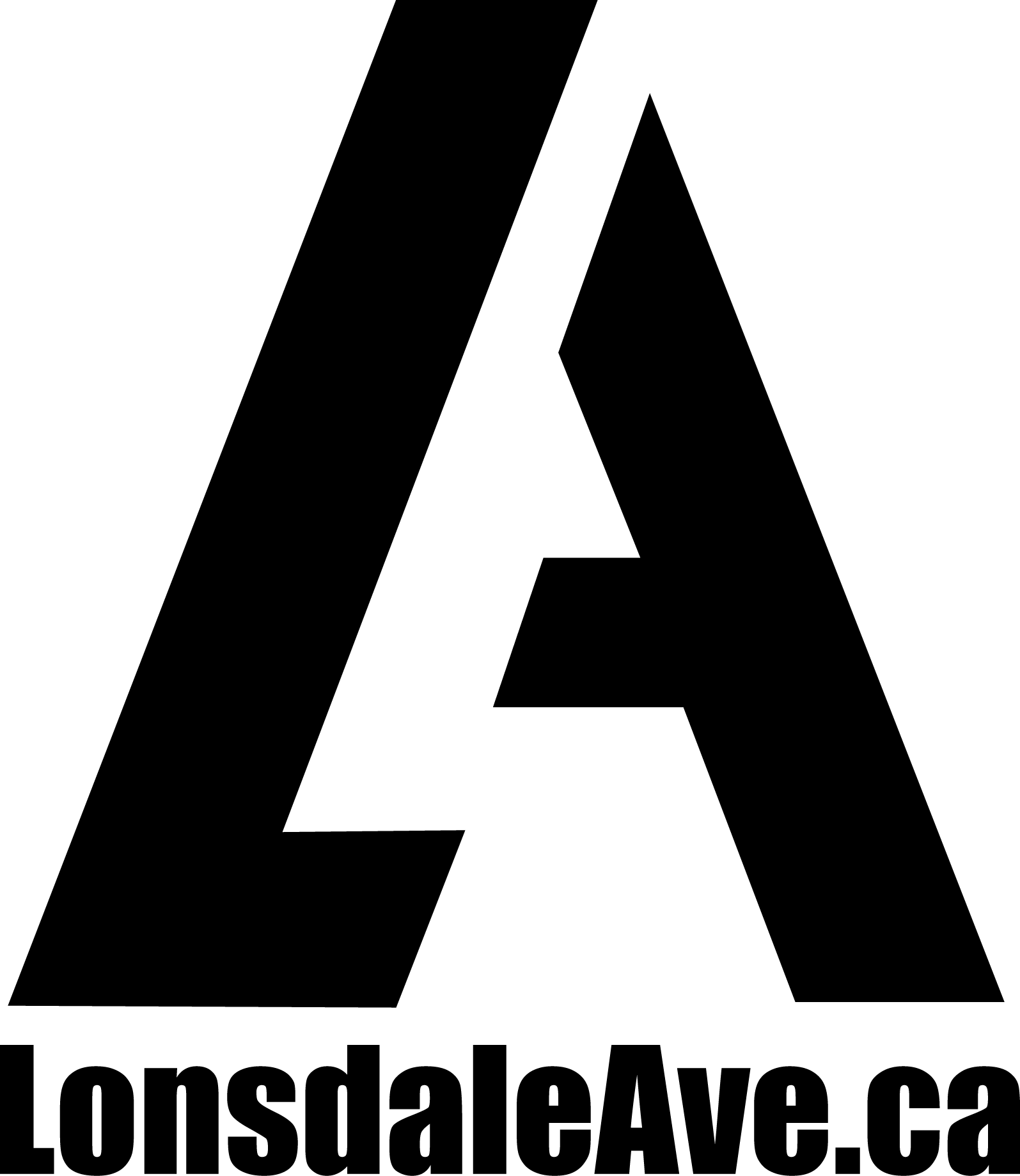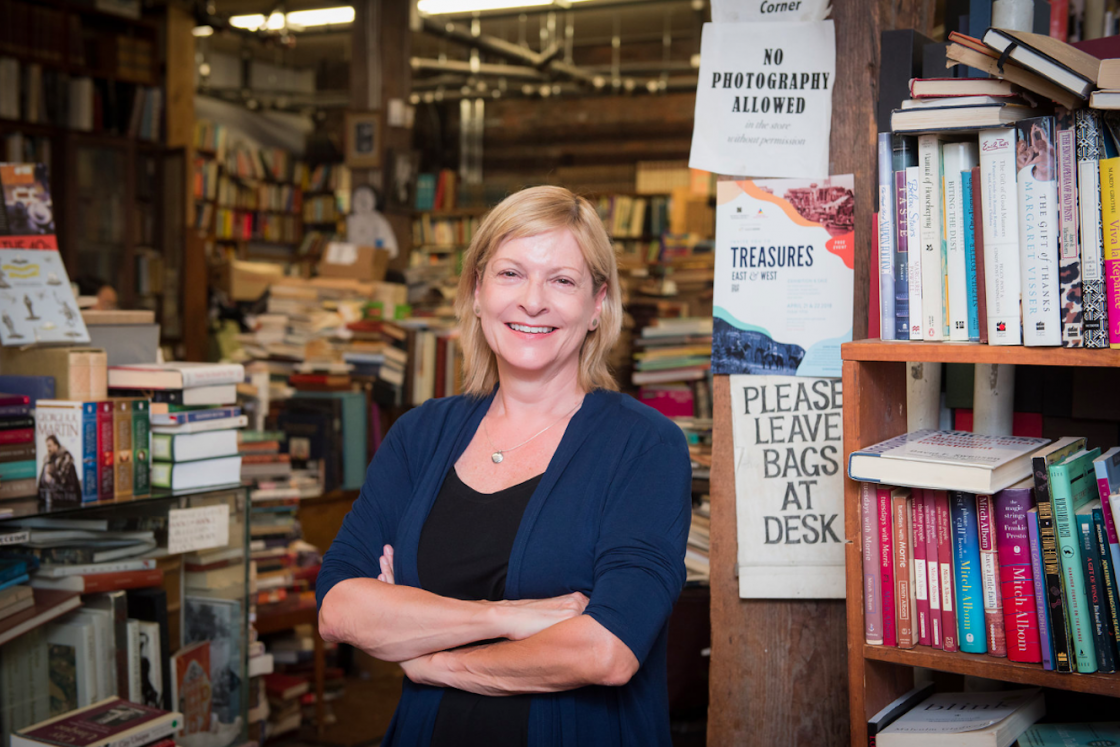Main photo taken by Rebecca Blissett at Macleod’s Books
British Columbia’s coastal region has history that stretches back 13,000 years, with the recent findings of the oldest known human footprints anywhere in North America by University of Victoria’s Hakai Institute. This means that people have been living in and travelling through the West Coast of Canada for much longer than many people realize. When we think about and consider the history of Vancouver we often have at the forefront the European settling of the region, which first happened in 1971 by Spanish explorer and sailor José María Narváez. One year after this George Vancouver reached the shores and continued to explore the coastal regions. George arrived at what is now considered the present day City of Vancouver before any other European, and thus we have the origin of the cities name.
To dive deep into the unknown history of the area we have had the distinct pleasure of speaking with Eve Lazarus, who is a published author of many books and a well respected local writer who operates her own website where you can purchase her work and learn more by connecting with her on social media. It’s with great admiration that we share her story with you below, as we respect her works and ability to tell the story of what makes Vancouver so incredible. This magazine feature is a little bit longer than others we have published but we thought it was important to be detailed as local history is important to us.
When did you first know that you were into history and how did that turn into a writing passion?
It was in 2002. I was a business reporter and freelance writer and I happened to read this article in the Homes Section of the Vancouver Sun one Saturday. The story mentioned a guy called James Johnstone, a house researcher who lived in Strathcona. People would hire James to research their heritage house and he would find out about everyone who ever lived there, anything that happened in the house and then put the information and archival photos into context with what was happening at the time in Vancouver’s history.
I was intrigued by the idea that a house had a genealogy or a social history much like a person and I called James up and told him I’d like to write about his work. I’d never been to Strathcona before and he kindly offered to take me on a tour. I was amazed to find gorgeous heritage houses filled with stories of bootleggers, brothels, gambling joints, corrupt cops and amazing women.
I found a few other house researchers across Canada and I sold variations of this story to Nuvo, Style at Home, the Globe and Mail, Marketing Magazine and a couple of real estate papers. The idea that a house has a social history became the basis for my first book At Home with History: The Untold Secrets of Greater Vancouver’s Heritage Homes, published in 2007.
After the book came out people started to add to the stories. They’d tell me about their great grandmother who was madam, their uncle the bootlegger or send a photo of their great grandparent’s house in Vancouver of the 1890s that had never been seen before outside of their family album. I didn’t have anywhere to put this new information, so in 2010 I started a blog called Every Place has a Story to tell more stories and act as a repository for other people’s history. A little later I started a Facebook page of the same name and started to connect with other people who were passionate about Vancouver’s history and heritage buildings and criminal underbelly.
The blog and the Facebook page became the basis for my latest book Vancouver Exposed: Searching for the City’s Hidden History.
What are some of your favourite parts of Vancouver history that come to mind in which people may not know about?
Discovering legendary women that have mostly been passed over by history. There is Tosca Trasolini (on the cover of Sensational Vancouver) an aviator and member of the Flying Seven, a group of women pilots formed in 1935. There is North Vancouver’s Phyllis Munday who literally climbed mountains, and Valerie Jerome, also from North Vancouver who was just as talented as her famous brother Harry but has largely gone unrecognized. There is the West End’s Elsie Gregory MacGill, the first female aircraft designer and Nellie Yip Quong who was not Chinese as her names suggest, but fought against racism and for the rights of the community. Nellie spoke five Chinese dialects and helped deliver more than 500 Chinese babies between 1904 and her death in 1949.
What are all of the books you have written and published and where can people buy them?
I’ve written nine books of non-fiction—mostly a blend of history and true crime. Any independent bookstore will happily order in any of the titles if they don’t have them on the shelves or you can order online through my publishers. They are also available at Chapters/Indigo and Amazon.
• Vancouver Exposed: searching for the city’s hidden history, Arsenal Pulp Press, 2020
• Murder by Milkshake: an astonishing true story of adultery, arsenic, and a charismatic killer, Arsenal Pulp Press, 2018
• Blood, Sweat, and Fear: the story of Inspector Vance, Vancouver’s first forensic investigator, Arsenal Pulp Press, 2017
• Cold Case Vancouver: the city’s most baffling unsolved murders, Arsenal Pulp Press, 2015
• Sensational Vancouver, Anvil Press, 2014
• Sensational Victoria: bright lights, red lights, murders, ghosts & gardens, Anvil Press, 2012
• The Life and Art of Frank Molnar, Jack Hardman and LeRoy Jensen, Mother Tongue Publishing, 2009 (co-author)
• At Home with History: the untold secrets of Greater Vancouver’s heritage homes, Anvil Press, 2007.
• Frommer’s Vancouver with Kids, John Wiley & Company, Toronto, 2001.
With regards to North Vancouver, what are a few unknown historical gems that we can share with the community?
I’ve devoted an entire section of Vancouver Exposed: Searching for the City’s Hidden History to North Vancouver because there are so many great stories. One of my favourites is the VanTan Nudist Club. I live in Lynn Valley, and for over 20 years I thought VanTan was an urban myth. Turns out it’s not and a few years back I spent a day up there. VanTan was founded in 1939 and is Canada’s oldest nudist camp and it’s right at the top of Mountain Highway.
I love that the World Belly Flop and Cannonball Diving Championship was held at the Coach House Inn for a couple of years in the 1970s. In 1979, Kamikaze Bill—a logger from Bellingham leapt from a hot air balloon into the pool to come in second. First place went to 20-year-old Robin Gentile from North Vancouver, who weighed in at an impressive 300-pounds. The winner of Miss 1979 Belly Flop was Christy Russell, a 450-pound stripper who went under the stage name Fannie Annie and used to come up to Vancouver to perform at the Penthouse Club.
A big surprise for me was finding out that North Vancouver had a residential school. The St. Pauls Indian Residential School was built in 1899 and demolished in 1959 to make way for what is now the original building at St. Thomas Aquinas secondary school on Keith Road. In 2014, a survivors’ monument was installed at the corner of Forbes Avenue and Sixth Street in front of the old convent. It’s dedicated to the more than 2,000 mostly Coast Salish people who were forcibly confined there.
How have you found branching out into podcasting has impacted your reach and storytelling for historical topics?
I have two podcasts out now. Blood, Sweat and Fear: The Story of Inspector Vance is a 12-episode true crime podcast that’s based on my book of the same name and takes place between 1907 and 1950. My most recent podcast is Cold Case Canada and that’s based on my book Cold Case Vancouver: The City’s most Baffling Unsolved Murders. Both have a North Vancouver component. Inspector Vance lived here until 1930 and his house is still on Cumberland Street, while five of the cold cases involve local people.
The podcasts are technically true crime, but each one is focused on the victim and is informed by what was happening in Vancouver at the time—whether that was a corrupt chief of police, the Depression or a world war for example. Each podcast also has interviews with either family members or friends of the victim, detectives who worked the murder cases, and a variety of professionals that includes a coroner, a prosecutor, a defence lawyer and a criminologist to provide further insight into the cases.
I’m currently planning a second podcast series of Cold Case Canada for late Spring. It’s an exciting medium and while interest in the book has mostly been local, the podcast reaches a much wider and younger audience. At various times it’s ranked high in the charts on Apple Podcasts in Canada, but it’s also done really well in Thailand, Switzerland, the Netherlands, France, Israel, Romania, Denmark, Vietnam and Singapore.
Who are some history authors that you enjoy reading books written by and which titles do you like the most?
These are a few of my favourites that I go back to frequently—Kate Bird’s Vancouver in the Seventies, Michael Kluckner’s Vancouver Remembered, Donald Luxton’s Building the West, Aaron Chapman’s Vancouver After Dark, John Belshaw’s Vancouver Confidential, Daniel Francis’s Where Mountains Meet the Sea, Selwyn Pullan: Photographing Mid-Century West Coast Modern, Lisa Anne Smith’s Our Friend Joe: The Joe Fortes Story, and Wylie Blanchet’s The Curve of Time.
What would you recommend to young aspiring writers who are getting started in their careers and looking to get published?
Before Covid, I was teaching a 12-week course on this subject (non-fiction writing) at Simon Fraser University. To hit the high points, I’d suggest researching print and online publications that you enjoy. Find out the type of articles that they publish and come up with an idea that has an interesting slant that would appeal to their readers. Do your research, find some sources and pitch a carefully crafted query letter to the editor that demonstrates why you are the best person to write this story and answer the question why is this story relevant now?
Outside of being a writer, what do you get up to for hobbies or similar in your personal time?
If I’m researching a book, blog post or podcast I’m likely exploring old buildings, tunnels, crime scenes or at the archives or the library. Otherwise, you’ll find me taking advantage of North Shore trails like the Varley Trail and Headwaters with Pickles my dog or biking the Spirit Trail or the Seymour Demonstration Forest in warmer weather.
For more info, to ask questions and connect with Eve, visit her website
Connect with her on social media using Instagram and Twitter
You can also reach out to her using email evelazarus@shaw.ca
Additional websites to checkout for details on Vancouver’s history…


